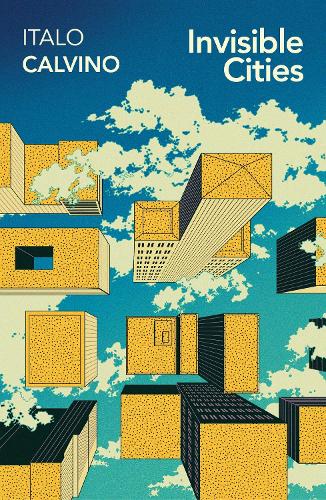
Invisible Cities
(Paperback)
Publishing Details
Invisible Cities
By (Author) Italo Calvino
Translated by William Weaver
Vintage Publishing
Vintage Classics
3rd August 2023
2nd October 1997
United Kingdom
Classifications
General
Fiction
Literary studies: fiction, novelists and prose writers
853.914
Physical Properties
Paperback
160
Width 130mm, Height 198mm, Spine 11mm
120g
Description
'A subtle and beautiful meditation' Sunday Times 'A subtle and beautiful meditation' Sunday Times In Invisible Cities Marco Polo conjures up cities of magical times for his host, the Chinese ruler Kublai Khan, but gradually it becomes clear that he is actually describing one city- Venice. As Gore Vidal wrote 'Of all tasks, describing the contents of a book is the most difficult and in the case of a marvellous invention like Invisible Cities, perfectly irrelevant.'
Reviews
Invisible Cities changed the way we read and what is possible in the balance between poetry and prose... The book I would choose as pillow and plate, alone on a desert island
Whole chapters of unforced poetic prose in which insight and fantasy are perfectly matched-an exquisite world * Observer *
'Invisible Cities is perhaps his most beautiful work-the artist seems to have made peace with the tension between man's ideas of the many and the one * New York Review of Books *
The most beautiful of his books throws up ideas, allusions, and breathtaking imaginative insights on almost every page. Each time he returns from his travels, Marco Polo is invited by Kublai Khan to describe the cities he has visited-Although he makes Marco Polo summon up many cities for the Khan's imagination to feed on, Calvino is describing only one city in this book. Venice, that decaying heap of incomparable splendour, still stands as substantial evidence of man's ability to create something perfect out of chaos * Times Literary Supplement *
So important for thinking about the rich layers of life around us, our frailties, how we question and how we find meaning. * Red *
Of all the Italian post-war novelists, Italo Calvino is the adventurer. He glitters, impersonal, brilliant and lasting * Financial Times *
Hypnotic. It is about as close to meditation as read can get * i *
Author Bio
Italo Calvino was born in Cuba in 1923. He grew up in Italy. He was an essayist and journalist and a member of the editorial staff of Einaudi in Turin. In 1973 he won the prestigious Premio Feltrinelli. He died in 1985
